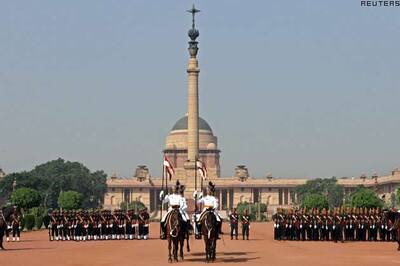
views
New Delhi: This financial year saw the banking industry grappling with several issues — right from mounting bad loans, delays in resolution of large cases under the insolvency and bankruptcy code, liquidity crunch and stress build up in micro, small and medium enterprise (MSME) loans.
Although there were green-shoots of recovery with credit demand picking up and incremental addition of bad loans slowing down, the coming financial year will be crucial to restore the health of the banking industry and get it back on its feet after the tough past few years.
For public sector banks (PSBs) that have faced the worst of the bad loan problem due to their larger exposure to infrastructure and steel sectors, capital is the key to revival, and that remains their key demand from the government as it gets set to present the interim budget later this week.
The central government had announced its plan to infuse Rs 2.11 trillion into 20 state run banks by March 2019, which included banks raising some portion of the capital from the markets themselves through the course of the year.
With PSBs failing to raise the expected Rs 580 billion from markets themselves, the government increased its capital infusion into these banks to Rs 1.06 trillion for the current fiscal. Banks are hopeful that the next tranche of capital support for FY20 will be announced on February 1.
Some bankers also expect government to announce steps that may help the industry tackle the bad loans menace.
Sunil Srivastava, the former head of corporate banking at State Bank of India, said, “Trade Receivables Discounting System (TReDS) should be made compulsory for registration and acceptance by all corporates including the PSUs under ministry of corporate affairs and also include the various authorities of the government (NHAI, Discoms etc.) to ensure continuity of working capital cycles, the absence of which is one of the main reasons for the sickness and NPAs in the country.”
TReDS is an online mechanism for facilitating the financing of trade receivables of MSMEs through multiple financiers.
Banks had earlier made a representation to the union finance ministry on several key issues that they wanted the government to address in the interim budget.
In view of the government’s push for lending to the infrastructure sector, banks have also sought provision to raise tax-free bonds to lend to this sector, said another banking official on the condition of anonymity.
“Union budget 2019 will have to do a delicate balancing between prudence and aspirations. I am optimistic about budget being considerate towards needs of banking industry, both in terms of capital allocation and giving tax parity for bank products vis a vis other alternatives. It's time to consolidate gains on inflation by realigning incentives for financial intermediation with welfare of common man being the guiding principles. The benefit of lower inflation is not getting transmitted due to high cost of deposits. Some initiatives in this direction will be beneficial to the economy,” said Rajkiran Rai, the managing director and chief executive officer at Union Bank of India.
Follow the live updates here.



















Comments
0 comment